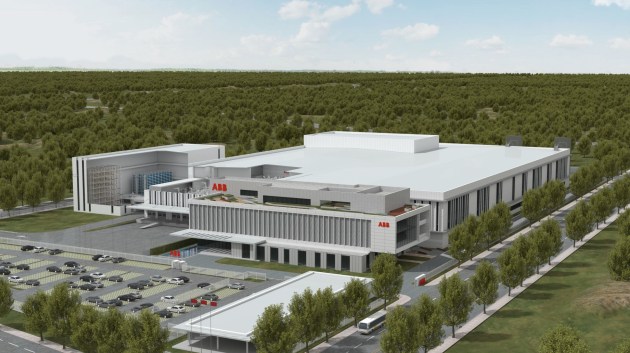ABB has broken ground on its new US$150m robotics manufacturing and research centre in Shanghai, expected to open in 2021.
The 67,000 square metre facility will, according to ABB, be the most automated, advanced, and flexible robotics factory in the world, and will feature robots making robots; it will also incorporate an onsite R&D centre for artificial intelligence.
According to Peter Voser, chairman and CEO of ABB, the investment represents a big push into a lucrative robotics market: one out of every three robots sold in the world in 2017 went to China, and global robot sales are predicted to top $130bn in 2025, up from $80bn today.
“The establishment of the new factory is another milestone in ABB’s development in China and will further strengthen our leadership in the world’s largest robotics market.
“Since the project announcement last October, we have been provided with tremendous support from the local government. It has been listed among the Top 10 projects of the ‘Manufacturing in Shanghai’ initiative in 2019, a great honour for ABB,” said Voser.

Production in the new factory will use cells of automation, instead of a traditional fixed assembly line, allowing robots to move from station to station and boost flexibility. A “digital twin” will provide data insights and machine learning capabilities to improve performance, and quality will be maintained through a machine learning system to inspect robots as they are being assembled.
Sami Atiya, president of robotics and discrete automation at ABB, said the factory will be a major boost to both the company and to Chinese manufacturing.
“As the market leader in industrial robotics in China, we are proud to support the Chinese industry in strengthening its manufacturing sector.
“Despite short-term market challenges, China’s development as a global manufacturing hub, the ongoing trend towards mass customisation, and a rising shortage in skilled labour will continue to create strong and lasting demand for automation solutions in the region.
“In the years ahead, we estimate the breadth and depth of our portfolio will nearly double. This means we need a factory that can produce a greater variety of robots and efficiently scale volumes to adapt to changing market conditions and technological trends,” said Atiya.
The Shanghai factory will replace ABB’s existing local facility as one of three ABB factories worldwide; the others are in Auburn Hills, Michigan, and Västerås, Sweden. China represents ABB’s second largest market, and the company has invested more than US$2.4bn in the country since 1992.






